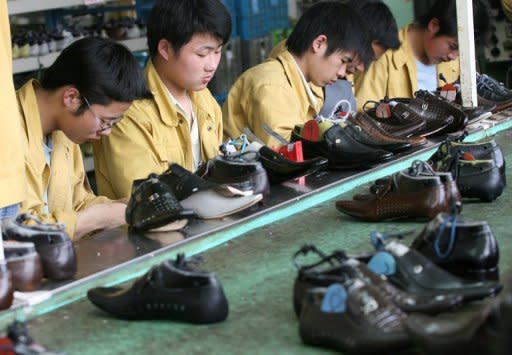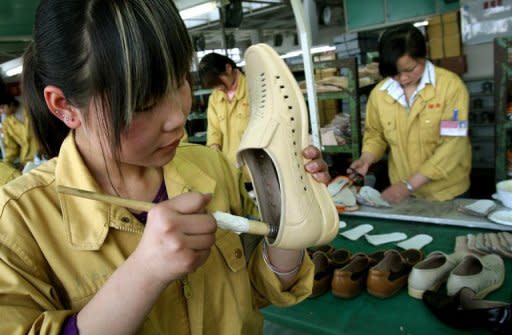US sees promise in China economic reforms
China's leaders are sliding their toes further into the tide of economic reform, exciting ripples of cautious optimism in the United States, where Wall Street and Main Street could benefit. In recent days, the name of a mid-sized Chinese coastal city has percolated through official Washington as quickly as a viral photograph of a nude Congressman. That is because Wenzhou has been made a Petri dish for reforms that could remake the world's second largest economy -- carving much of the "state" out China's state capitalism and transforming global trade in the process. The details sound prosaic. Beijing has made it marginally easier for foreigners to invest in Wenzhou and for Wenzhou citizens to lend, borrow and invest abroad. The city accounts for a small portion of China's economy, so the impact of reforms is limited. But if rolled out across China the impact could be monumental. "We have been looking for movement along these lines for at least a decade, certainly since China joined the WTO," the World Trade Organization, said Grant Aldonas, a former presidential adviser and undersecretary of commerce. "The historical pattern has been to start with the special economic zones (like Wenzhou), to add on a couple more pilot projects and then eventually to scale up," he said. Under the plans, US investors would find it easier to invest in China -- expanding access to a lucrative and growing market. But easing restrictions on cash going out of China could provide an equally substantial windfall for US business. "That is the real breakthrough reform," said Nicholas Lardy, a China expert at the Peterson Institute for International Economics. Today, China's cash-rich investors have few good choices. They can pile money into poorly performing local stocks, inflated local housing projects, cumbersome state enterprises or into dangerously unregulated shadow markets. "Even though the Chinese economy has been doing very well, the Chinese equity market was among the worst performing in the world last year and is still down about 60 percent from its 2007 peak," said Lardy, explaining some of the difficulties. He predicts that unshackled, China's wealthy would pour money into Wall Street, boosting US company's coffers and raising the value of millions of stock-based pensions. "Wenzhou has lots of sophisticated financial people, I would suspect that because a lot of them are very rich they would not be too interested in the very low fixed-income (bond) returns that are available outside China right now. They would be interested in equities." Allowing cash to flow abroad could also help China dampen criticism -- particularly vocal from the United States -- that its vast cash hoard is unbalancing the global economy and distorting trade. "China has $3 trillion of reserves, earning very little and causing a lot of problems," said Yukon Huang, a former World Bank country director for China. Foreign investments, he added, would help prevent the creation of bubbles, like those seen in the local housing market. Another significant reform would break the stranglehold of state-run banks on lending markets. Today, they predominantly lend to politically connected exporters who have thrived on a cheap-labor model that is unsustainable. Reformed, Huang believes cash would flow to local entrepreneurs focused on the local market, rather than oversubsidized behemoths. That in turn could slow the flood of cheap exports to the United States and level the playing field for US manufacturers. But for now the reforms, limited to Wenzhou, have limited impact. "In and of itself, is this one step going to change the world? No. But is it important? Yeah, it is," said Christian Lundblad. a professor and former financial economist at the Federal Reserve. Yet with China poised to gain a new set of leaders in the next year, it is far from clear that the reforms will be continued or enhanced. Any problems could will be seized on by opponents of reform, said Aldonas. "This has the capacity to be a bold play that works or to be something that is seized on by opponents of reform as a way of driving a snap-back." Americans, like the rest of the world, will have to wait and see if the Wenzhou Petri dish can nurture a new economic culture in China.




